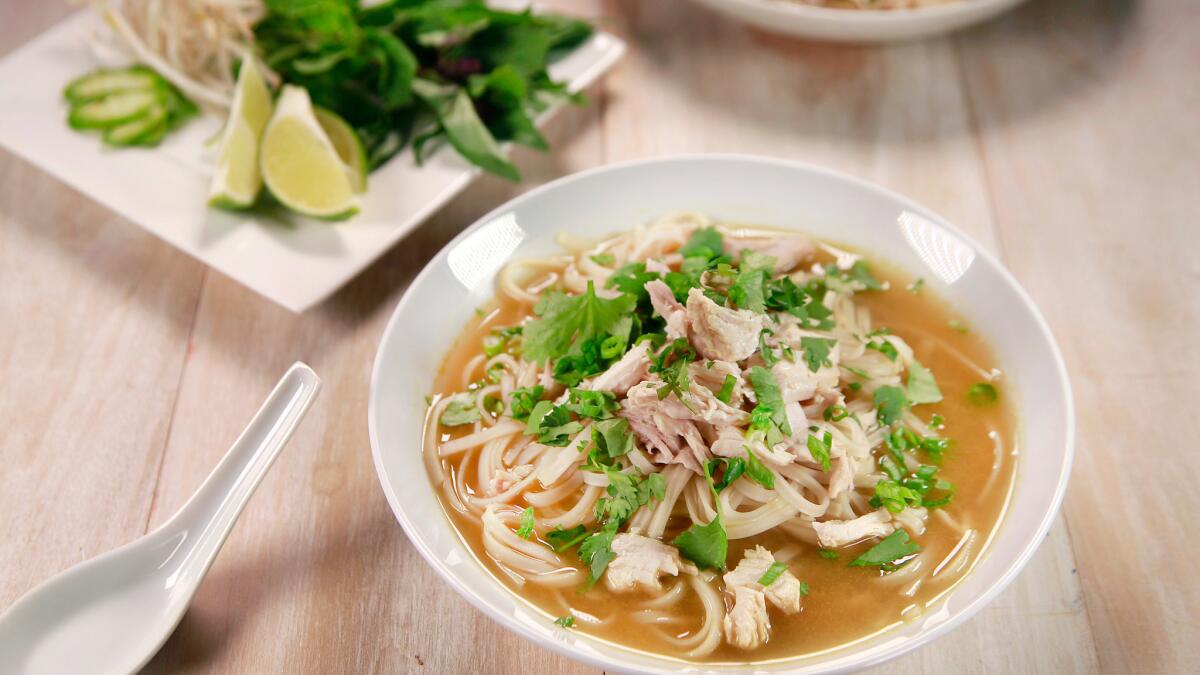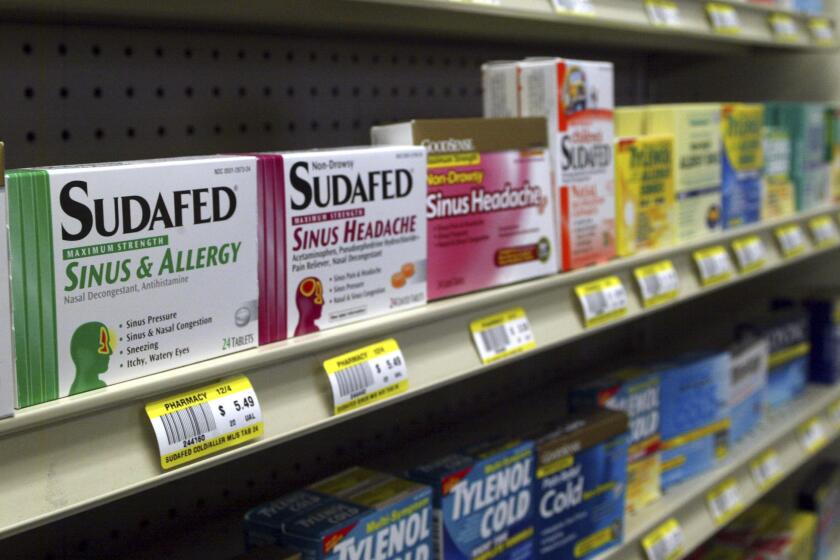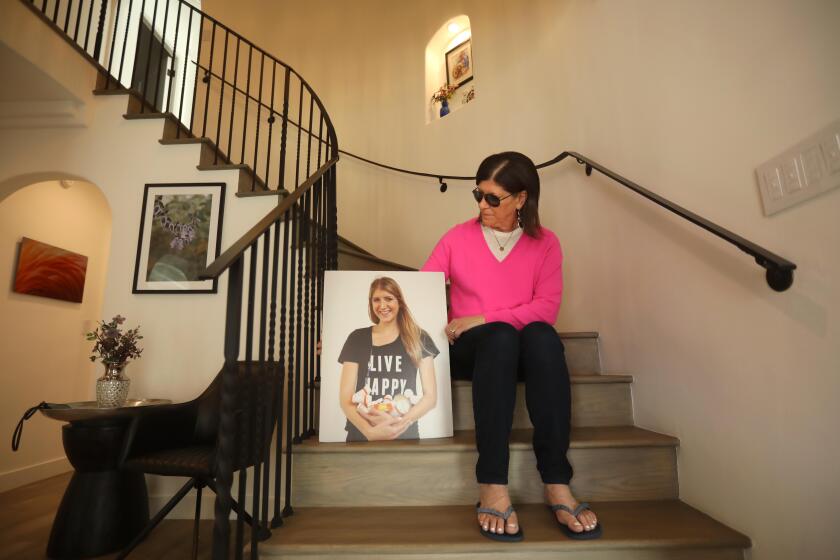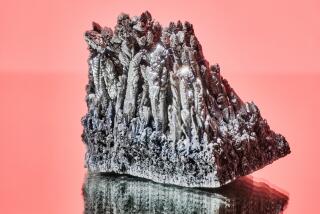Do zinc products really help shorten a cold? It’s hard to say

- Share via
You feel a cold coming on, or maybe it’s already upon you: the telltale cough, sore throat and stuffy head. You swing by the drugstore, where a shelf full of over-the-counter products containing the mineral zinc claim to be able to shorten the duration of your symptoms.
The promise of relief is tempting. But is it one these products can make good on?
A new analysis of studies published on zinc and cold viruses concludes that there isn’t enough evidence to say whether over-the-counter zinc treatments have any effect on preventing the common cold.
For those who pop lozenges or inhale nasal sprays once a cold has come on, the available research together indicates that the products may reduce the duration of symptoms by up to two days, said Daryl Nault, an assistant professor at Maryland University of Integrative Health and first author of the paper, published Wednesday by the nonprofit organization Cochrane.
But those studies are so inconsistent in terms of the dosage, type of zinc, patient population and definition of cold symptoms that “confidence in the evidence is mostly low to very low,” the review states. “It is likely that additional studies are required before any firm conclusions can be drawn.”
In other words: Nearly 30 years after zinc lozenges first hit the market, we still can’t say for sure if these things do what they say they do.
“We aren’t saying [zinc] does” have any effect on the common cold, Nault said. “We aren’t saying it doesn’t. We’re saying we need more consistent evidence that is replicable. That’s a cornerstone of good science.”
Government advisors say a leading medication used by millions of Americans to treat nasal congestion doesn’t actually work.
The age of zinc cold products dawned in 1996, when researchers from the Cleveland Clinic Foundation convinced 100 clinic employees to volunteer as research subjects within 24 hours of developing a cold.
Half were given placebos, and half were given lozenges containing 13.3 milligrams of zinc from zinc gluconate every two waking hours as long as their symptoms persisted. Those receiving the zinc got better after 4.4 days on average, while the placebo group felt sick for an average of 7.6 days.
Most people consume a sufficient amount of zinc, a vital nutrient, through a regular diet. The mineral is plentiful in red meat and poultry, and present in many grains and fruits. (Oysters contain more zinc per serving than any other known food, with a single serving containing nearly 300% of the daily recommended intake.)
Scientists aren’t exactly sure how the mineral works to alleviate cold symptoms. But the idea of an over-the-counter way to shorten the misery of a common cold has proved wildly popular.
Total U.S. sales of zinc products, such as Zicam and Cold-Eeze, were $340 million in 2023, said Hannah Esper, managing editor of the trade publication Nutrition Business Journal. Demand for zinc and other supplements exploded during the COVID-19 pandemic, with sales for zinc growing 168.3% during 2020.
Based in the U.K., Cochrane uses rigorous research methods to evaluate existing scientific evidence and produce reports to help people make decisions about their health, according to its website.
Diane Shader Smith’s daughter, Mallory Smith, died at age 25 after fighting an antibiotic-resistant lung infection for 12 years. A new book of her daughter’s diary entries and a website are aimed at finding solutions.
For this review, the Cochrane team looked at 34 studies conducted across 13 countries that examined zinc products and the treatment or prevention of the common cold.
Drawing strong conclusions from the available research is difficult, as the studies tend to measure different things, said author Susan Wieland, an assistant professor at the University of Maryland School of Medicine and director of the Cochrane Complementary Medicine Field.
The cold “is a very common condition that is a difficult one to study,” Wieland said. It comes and goes quickly, making it difficult to enroll research subjects. Dosages and the type of zinc administered to study subjects varied widely.
“The designs of each study are different. So different dosages, different dosage forms, different patient populations, different criteria of exclusion and inclusion, different outcomes [and] definitions of cold,” said Dr. Jason Yee, an antimicrobial stewardship pharmacist at Cedars Sinai Medical Center in Los Angeles who was not involved with the review. “It’s really hard to draw the same conclusion based on different studies.”
Robert F. Kennedy Jr., in a 2012 deposition, reportedly cited health issues that he attributed to a worm in his brain.
Physicians said they weren’t surprised by the findings.
“I agree with the study. ... It is consistent with my clinical experience in the hospital,” said Dr. Samia Faiz, an internal medicine specialist at UC Riverside Health. “In general, healthy people may be able to take zinc supplements if they make them feel better or if they get some comfort. They should not take these supplements if they have distaste or stomach upset.”
While over-the-counter zinc products are generally harmless to patients battling colds, said Dr. Pritish Tosh, an infectious disease physician and researcher at the Mayo Clinic, popping lozenges “shouldn’t come at the expense of doing things that really matter, which is getting plenty of rest, plenty of fluids and taking care of yourself.”
So why do we continue to fork over our cash for these things when we don’t really have more than a hunch that they work?
When a cold hits, “it’s natural for consumers to just reach for anything that may help alleviate those symptoms. But average consumers aren’t really educated on the literature and studies that are out there showing that there’s limited evidence and efficacy with these products,” Yee said.
Buying the lozenges or huffing the nasal spray can make us feel like we have more agency in a situation where we’re at the mercy of time and our immune systems, Nault said.
“Having a sense of control makes a lot of people feel better, and feel like they’re doing something,” Nault said. “Even if they aren’t.”
Times researcher Scott Wilson contributed to this report.
In a nationwide survey of parents, 57% said they struggled with stress, exhaustion and feeling overwhelmed. When parents suffer burnout, children may suffer too.









